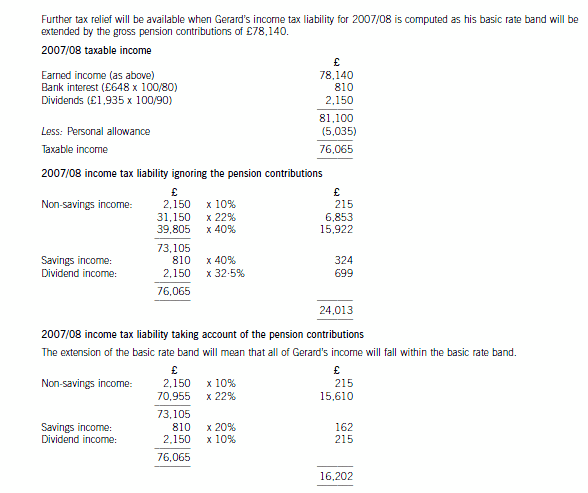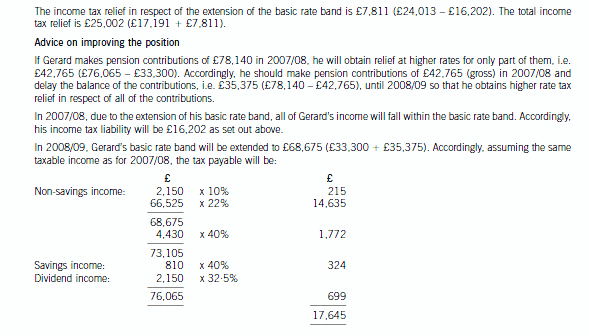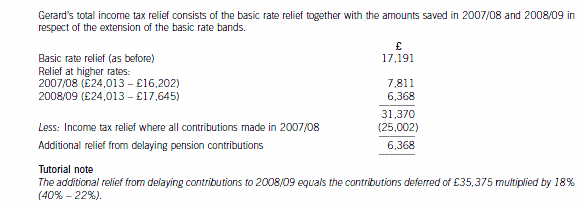想知道大学四年能不能考完ACCA证书,看一下吧!
发布时间:2020-03-06
ACCA资格考试是为数不多在大学期间就可以报考的高端职业资格证,也因此受很多在读大学生们的青睐。不过,ACCA报考周期比较长,科目也较多,因此,很多人都担心大学几年的时光也无法考完ACCA。那么,考完ACCA都需要多久呢?一起来了解一下吧!
鉴于ACCA考试科目比较多,考试时间又比较灵活的特点,在无免考的情况下我们总共要通过13门,因此,我们最快考完ACCA也需要1年半的时间,不过,因为ACCA考试本身的难度,大部分人都会出现1-2门重考的可能,因此会有1个考季的推迟情况。
那我们大学期间就很难考完ACCA?其实,是完全可以的。ACCA本身就非常适合大学生考,自会计证书取消后,ACCA更是成为了少数能在大学就能报考的资格,只要我们顺利完成大一的课程考试,我们就可以报考ACCA。
三年的时间对于一个学期精力比较充足的大学生来讲是,毕业前完全是有可能考完的。ACCA考试难度如何?对于ACCA的难度,其实很大一部分是来自于英语和坚持,而ACCA考试的知识难度是以英国大学学位考试为标准的,对于我们来讲并不难完成。
具体而言,第一、第二部分的难度分别相当于学士学位高年级课程的考试难度,第三部分的考试相当于硕士学位最后阶段的考试。
第一部分的每门考试只是测试本门课程所包含的知识,着重于为后两个部分中实务性的课程所要运用的理论和技能打下基础。
第二部分的考试除了本门课程的内容之外,
还会考到第一部分的一些知识,着重培养学生的分析能力。
第三部分的考试要求学生综合运用学到的知识、技能和决断力。不仅会考到以前的课程内容,还会考到邻近科目的内容。由此可见,只要我们英语过关,并掌握一定的财务词汇,能够理解知识应用知识,那么考过还是很容易通过的。
ACCA考试通过率有多高?根据ACCA官方公布的历年考试通过率来看,ACCA全球单科通过率基本在30-40%左右,中国学员通过率为50-60%,通过报考辅导班而通过的学员通过率可达到70%-80%以上。
好了,以上就是今天的内容介绍。还想了解更多信息,欢迎来51题库考试学习网留言哦!
下面小编为大家准备了 ACCA考试 的相关考题,供大家学习参考。
(b) Wallace Co; and (5 marks)
(b) Wallace Co
Being the audit manager, Valerie Hobson is clearly in a position to influence the outcome of the audit. She appears to have
entered into a private commercial transaction with her client. IFAC’s Code of Ethics for Professional Accountants does not
prohibit such commercial transactions so long as they are:
– In the normal course of business,
– At arm’s length, and
– The value is not material to either party.
In this case the transaction is in the normal course of business for the client. Rental of storage space is not the main business
of Wallace Co, but it appears that this type of transaction is quite common for the company. However the note on the invoice
indicates that a substantial discount has been offered and accepted, and so the transaction is not at arm’s length. The value
is not material to Wallace Co, but could represent a significant discount to normal commercial terms to the audit manager.
Goods and services can be received from an audit client, but only if the value is clearly insignificant.
A self-interest threat is clearly established. Valerie Hobson is benefiting financially from her position as audit manager. She
may compromise the audit approach – which has recently been planned – and furthermore she may compromise the audit
opinion to keep the client happy. She may also have other audit clients where bias could have occurred.
Action to be taken:
– The ethics partner will need to evaluate whether the value of the transaction and the discount received is ‘clearly
insignificant’.
– Her benefiting from a discount on services provided by Wallace Co, which was not disclosed, could result in disciplinary
action.
– Valerie should be removed from the audit immediately, and a new audit manager assigned to Wallace Co.
– The audit planning for year ended 31 May 2008 should be subject to independent review and amendments made where
necessary.
– The transaction should be disclosed to the audit committee of Wallace Co, or to those charged with governance.
– The ethics partner may wish to consider Valerie’s relationships with other audit clients for any evidence of transactions
or other indicators of potential bias.
(c) Issue of bond
The club proposes to issue a 7% bond with a face value of $50 million on 1 January 2007 at a discount of 5%
that will be secured on income from future ticket sales and corporate hospitality receipts, which are approximately
$20 million per annum. Under the agreement the club cannot use the first $6 million received from corporate
hospitality sales and reserved tickets (season tickets) as this will be used to repay the bond. The money from the
bond will be used to pay for ground improvements and to pay the wages of players.
The bond will be repayable, both capital and interest, over 15 years with the first payment of $6 million due on
31 December 2007. It has an effective interest rate of 7·7%. There will be no active market for the bond and
the company does not wish to use valuation models to value the bond. (6 marks)
Required:
Discuss how the above proposals would be dealt with in the financial statements of Seejoy for the year ending
31 December 2007, setting out their accounting treatment and appropriateness in helping the football club’s
cash flow problems.
(Candidates do not need knowledge of the football finance sector to answer this question.)
(c) Issue of bond
This form. of financing a football club’s operations is known as ‘securitisation’. Often in these cases a special purpose vehicle
is set up to administer the income stream or assets involved. In this case, a special purpose vehicle has not been set up. The
benefit of securitisation of the future corporate hospitality sales and season ticket receipts is that there will be a capital
injection into the club and it is likely that the effective interest rate is lower because of the security provided by the income
from the receipts. The main problem with the planned raising of capital is the way in which the money is to be used. The
use of the bond for ground improvements can be commended as long term cash should be used for long term investment but
using the bond for players’ wages will cause liquidity problems for the club.
This type of securitisation is often called a ‘future flow’ securitisation. There is no existing asset transferred to a special purpose
vehicle in this type of transaction and, therefore, there is no off balance sheet effect. The bond is shown as a long term liability
and is accounted for under IAS39 ‘Financial Instruments: Recognition and Measurement’. There are no issues of
derecognition of assets as there can be in other securitisation transactions. In some jurisdictions there are legal issues in
assigning future receivables as they constitute an unidentifiable debt which does not exist at present and because of this
uncertainty often the bond holders will require additional security such as a charge on the football stadium.
The bond will be a financial liability and it will be classified in one of two ways:
(i) Financial liabilities at fair value through profit or loss include financial liabilities that the entity either has incurred for
trading purposes and, where permitted, has designated to the category at inception. Derivative liabilities are always
treated as held for trading unless they are designated and effective as hedging instruments. An example of a liability held
for trading is an issued debt instrument that the entity intends to repurchase in the near term to make a gain from shortterm
movements in interest rates. It is unlikely that the bond will be classified in this category.
(ii) The second category is financial liabilities measured at amortised cost. It is the default category for financial liabilities
that do not meet the criteria for financial liabilities at fair value through profit or loss. In most entities, most financial
liabilities will fall into this category. Examples of financial liabilities that generally would be classified in this category are
account payables, note payables, issued debt instruments, and deposits from customers. Thus the bond is likely to be
classified under this heading. When a financial liability is recognised initially in the balance sheet, the liability is
measured at fair value. Fair value is the amount for which a liability can be settled between knowledgeable, willing
parties in an arm’s length transaction. Since fair value is a market transaction price, on initial recognition fair value will
usually equal the amount of consideration received for the financial liability. Subsequent to initial recognition financial
liabilities are measured using amortised cost or fair value. In this case the company does not wish to use valuation
models nor is there an active market for the bond and, therefore, amortised cost will be used to measure the bond.
The bond will be shown initially at $50 million × 95%, i.e. $47·5 million as this is the consideration received. Subsequentlyat 31 December 2007, the bond will be shown as follows:

(c) Calculate and explain the amount of income tax relief that Gerard will obtain in respect of the pension
contributions he proposes to make in the tax year 2007/08 and contrast this with how his position could be
improved by delaying some of the contributions that he could have made in 2007/08 until 2008/09. You
should include relevant supporting calculations and quantify the additional tax savings arising as a result of
your advice.
You should ignore the proposed changes to the bonus scheme for this part of this question and assume that
Gerard’s income will not change in 2008/09. (12 marks)




声明:本文内容由互联网用户自发贡献自行上传,本网站不拥有所有权,未作人工编辑处理,也不承担相关法律责任。如果您发现有涉嫌版权的内容,欢迎发送邮件至:contact@51tk.com 进行举报,并提供相关证据,工作人员会在5个工作日内联系你,一经查实,本站将立刻删除涉嫌侵权内容。
- 2020-01-09
- 2020-03-21
- 2020-04-23
- 2020-04-10
- 2020-01-10
- 2021-08-12
- 2021-04-24
- 2020-01-10
- 2020-01-10
- 2019-07-20
- 2020-04-09
- 2020-08-16
- 2020-04-28
- 2020-04-14
- 2020-05-14
- 2020-05-09
- 2020-03-11
- 2019-07-20
- 2020-01-10
- 2020-01-10
- 2020-01-10
- 2020-01-10
- 2020-01-10
- 2020-01-10
- 2020-05-07
- 2020-04-07
- 2020-01-10
- 2020-05-13
- 2020-04-18
- 2020-03-08